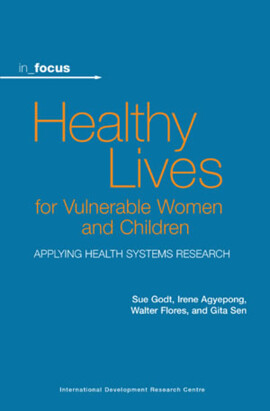
Health and Education For All
What you need to know
Building public services can transform the lives of millions of people - and, with political leadership, it is achievable in this generation. This punchy introduction to the issues provides case studies, real-life stories, background data, and critical analysis. It is a primer for campaigners, for students, and for all involved in trying to make the world a better, fairer place. It introduces us to people who are making a difference in their communities: to Afsana, a teacher in India; to Emilien, a doctor in Mali; to Nana, a health-care adviser in Georgia. And it puts their work into a global policy framework focusing on the role of governments and funders, and on NGOs and civil-society organisations. Health and Education For All: What you need to know is an up-to-date summary of the contents of a major research report published by Oxfam GB for Oxfam International in September 2006. In the Public Interest: Health, Education, and Water and Sanitation for All was published to support the launch of the Oxfam International campaign on basic services provision (health, education, and water and sanitation). The 122-page report, published with WaterAid, shows that building public services in developing countries is central to poverty eradication. It also considers the role of governments (local and national) in the provision of robust basic services, and the contributions that must be made by civil society, the private sector, and international and multilateral donors to securing and improving public services. With case studies from around the world, In the Public Interest is the next step in discovering more of what you need to know.
Published: 2008
Pages: 32
eBook: 9780855987640
Paperback: 9780855986285
| India case study | |||
|---|---|---|---|
| What needs to happen | |||
| Poor-country governments | |||
| Rich governments & international institutions | |||
| Public successes | |||
| Governments that provide essential services for all | |||
| Where governments fail to act | |||
| Government inaction: women and equality | |||
| Mali case study | |||
| Fees – a life or death issue | |||
| Missing professionals | |||
| Unaffordable and unavailable medicines | |||
| Georgia case study | |||
| Uncoordinated and fragmented services | |||
| Rich countries – pushing the private sector | |||
| What needs to happen | |||
| Shift the political agenda | |||
| Win the fight against corruption | |||
| Tackle the workforce crisis | |||
| Make services work for women | |||
| Provide access to affordable medicines | |||
| Support – not undermine – essential services | |||
| Conclusion |
La difficile costruzione di un consenso internazionale sulla fuga dei cervelli
Levatino, Antonina
Pécoud, Antoine
(2014) P.201
https://doi.org/10.3280/MM2014-002010 [Citations: 0]




